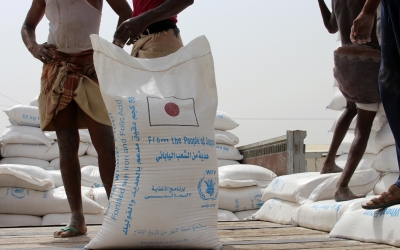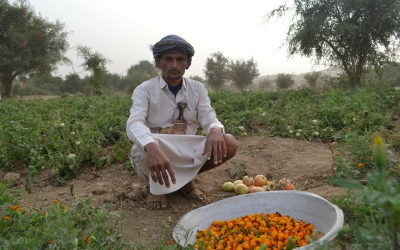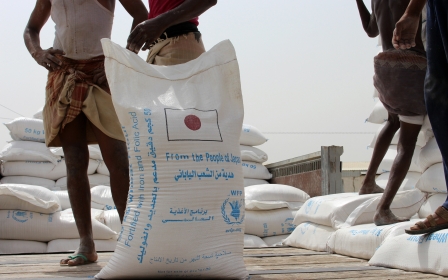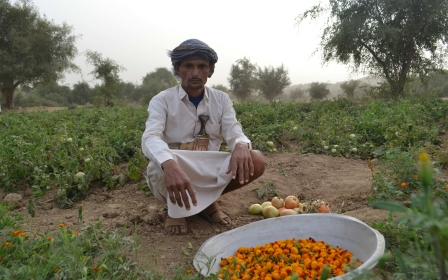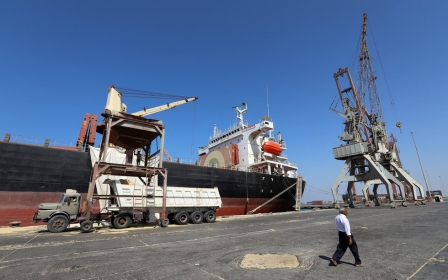Yemen's Houthis deny UN access to Hodeidah mills food aid: Sources
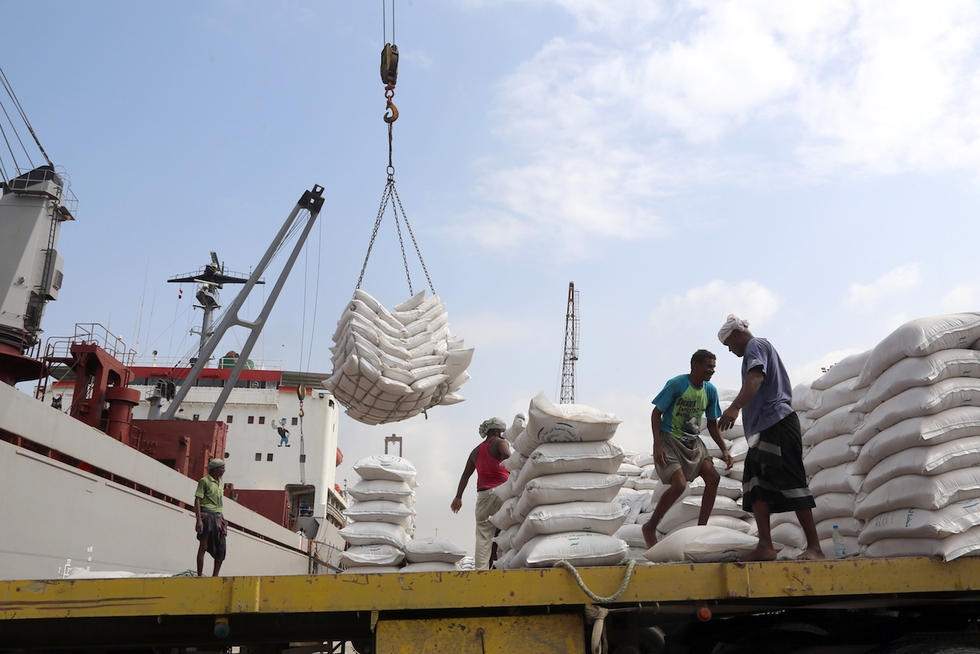
Houthi forces have denied the United Nations access to a grain storage site in the Yemeni port of Hodeidah on Tuesday, sources familiar with the matter said, hindering efforts to increase food aid to millions facing severe hunger.
Hodeidah is the entry point for most of Yemen’s humanitarian aid and commercial imports.
World Food Programme (WFP) grain stores there have been cut off in the conflict zone for six months, putting the contents at risk of rotting.
A WFP technical team was scheduled to cross the front line between the Houthis and the Saudi-led coalition fighting on the side of the Yemeni government on the eastern outskirts of Hodeidah to fumigate the wheat stored in the Red Sea Mills.
More than 100 workers were denied access to the Red Sea mills warehouse, according to a coalition source.
"Unfortunately, the Houthis have decided to once again renege on a previous commitment, denying the team access to the mills," the source told the AFP news agency.
The Reuters news agency reported that Houthi rebels had told the WFP team they could not leave Houthi-held areas inside Hodeidah city for "security reasons," asking the UN instead for a way to investigate attacks on the mills.
"The Houthis argued that government forces will target the UN and then they will be blamed for it," one source aware of the discussion told Reuters. "[But] if the wheat is not fumigated, it will be lost."
WFP spokesman Herve Verhoosel also told AFP on Tuesday that the mission planned by the UN agency to the Red Sea mills was postponed due to "security reasons".
Infested with insects
In February, a team from the WFP visited the Red Sea mills warehouse for the first time since September, when they became inaccessible due to the conflict.
The WFP said laboratory tests confirmed the wheat had been infested with insects and had to be fumigated to feed million of people.
Before the UN lost access in September the Red Sea mills held 51,000 tonnes of grain, which was enough to feed more than 3.7 million people for a month.
The latest developments come after an agreement was struck in Sweden in February, in which Yemeni rivals agreed to redeploy their fighters outside the ports and away from areas that are key to the humanitarian relief effort.
The ports are in the rebel-held west of the country, and the agreement especially set out free access to the Red Sea mills warehouses, under control of the Saudi-backed government forces.
Yemen's war escalated in March 2015, when a Saudi-backed coalition intervened against the Houthis who have seized the capital Sanaa.
Since then, the conflict has killed around 10,000 people, most of them civilians, and has left more than 60,000 wounded, according to the World Health Organisation. Independent analysist have put the death toll much higher, at more than 50,000.
Middle East Eye delivers independent and unrivalled coverage and analysis of the Middle East, North Africa and beyond. To learn more about republishing this content and the associated fees, please fill out this form. More about MEE can be found here.


